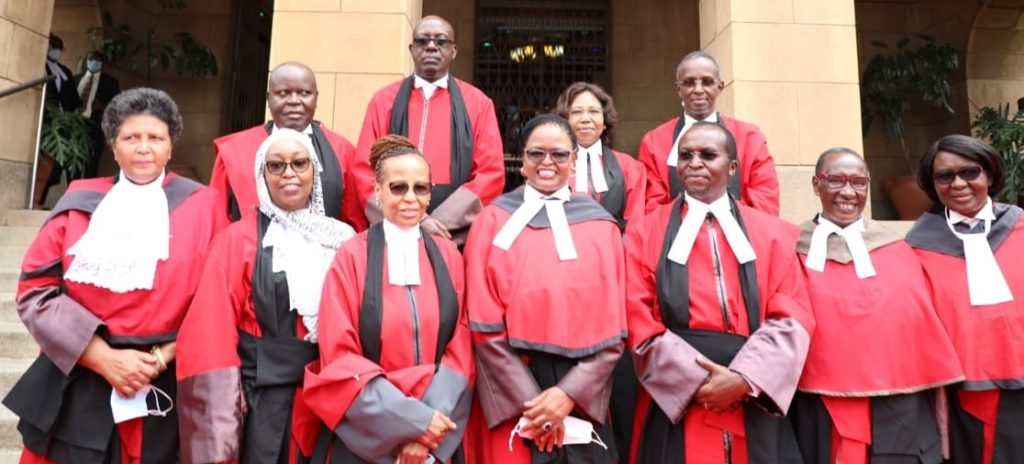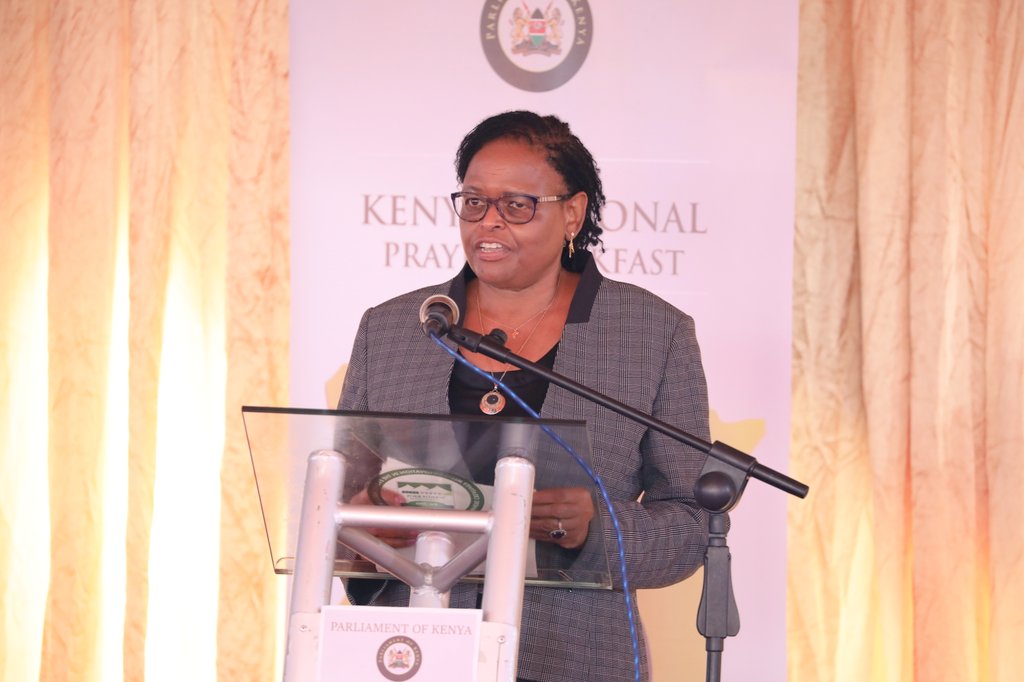NAIROBI,Kenya, June 11 – The stage was set at the Judiciary for the Court of Appeal Assumption of Office ceremony as Justice Daniel Musinga was sworn-in as the president of the Court of Appeal, an event also used to highlight challenges bedevilling the institution.
During the elaborate ceremony, the judicial independence, alleged capture by state and non-state actors and most noticeably the failure by President Uhuru Kenyatta to appoint six judges recommended by the Judicial Service Commission (JSC) to various courts took the center stage.
Chief Justice Martha Koome reiterating her earlier stance on the omission of the six judges for appointment said that, “even as we celebrate and welcome most warmly our 7 new justices of the Court of Appeal, this is indeed a moment which is bitter and the same time sweet.”
He called on President Kenyatta to execute his mandate as guided by the constitution.
“It would be remiss not to remember our four colleagues who should have been with us today but for reasons not know to us they are not. I want to take this opportunity to reiterate my position as the chief justice and as the chairperson of the Judicial Service Commission and state all person recommended by the JSC and as directed by the constitution must be appointed as judges,” CJ Koome said.
JSC, recommended 41 judges to appointed by the president to the Court of Appeal in July 23, 2019 and the Environment and Land Court and Employment and Labour Relations Court in August 13, 2019.
Though the CJ distanced herself from the controversy, citing her role as Judge and adjudicator, she insisted that she was duty bound, “ to reiterate this position and continue to call on his Excellency the President to appoint the remaining six Judges, four of whom would be joining this court.”
The judiciary has been facing several challenges as witnessed by the constant attacks on Judges as well as he Judicial independence which Koome said required renewed resolve at an individual and institutional level.
“At an individual level, every judicial officer, every judge has a duty to safeguard their independence and especially the independence of their Judicial independence to be guided by our oath of office that compels us that we must decide cases without any fear, favour, bias, affection, ill-will, prejudice, any political, religious or any influence,” she said.

Judges recommended for appointment to the Court of Appeal and rejected by the president include Justice Korir Weldon Kipyegon, Muchelule Aggrey Otsyula, Odunga George Vincent and Joel Mwaura Ngugi.
It is worth noting that justice Joel Ngugi and George Odunga were part of a five judge bench of the High Court that issued a scathing verdict that barred fundamental changes to the Kenya constitution 2010.
It’s a ruling legal pundits described as one of the most significant rulings since the nullification of the presidential election in 2017 by the country’s Supreme Court.
Koome noted that the threat of ‘Judicial capture’ was not only perpetuated by agencies within government or politics but also by the private sector, civil society, business communities and, “others who I will not name.”
“Sometimes we are told not to touch a matter and then you wonder what happened to the oath of office not to fear, decide based on fear?” posed the CJ.
“We are told not to exercise our Judicial minds otherwise in a certain way and one wonders what happens to the principle of matters that are pending in court? To me, this unsolicited commands are tantamount to interference with the Judge’s independence as the constitution forbids any party or authority from directing us in the discharge of our duties.”
Following Thursday budget reading by Treasury Cabinet Secretary Ukuru Yattani, Koome decried the lack of proper funding to the Judiciary.
She said that they have become accustomed to a ‘definitive’ budgetary allocation despite the work the Judiciary has to undertake in order to serve millions of Kenyans.
“Mr speaker (Muturi) you can see how dilapidated we are operating from this museum which I wonder why the Ministry of Health has not condemned it as unfit for human habitation. We have 36 other courts almost complete but can’t be occupied because we have no money to complete those buildings,” she said.
Kenyans are said to travel an average of 175 kilometers in order to seek justice.
And though the operations of the judiciary remain decentralized, backlog of cases continue to threaten its efficiency.
National Assembly Speaker Justin Muturi noted the challenges facing the Judiciary and the differences exhibited between different arms of government as he called for a consensus to iron out existing issues.
“We may not always agree but it is important that we talk to one another. I look forward to a situation that can afford us if possible all arms of government an opportunity to retreat at a colloquium in the coming months because such can provide us with the much needed engagement platform for better understanding for one another,” Speaker Muturi said.
Want to send us a story? Contact Shahidi News Tel: +254115512797 (Mobile & WhatsApp)


